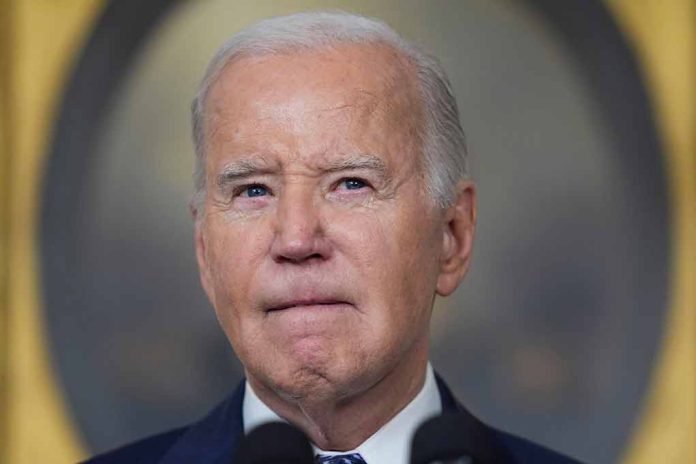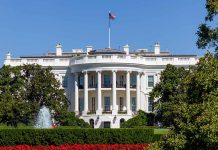
Our Commander-in-Chief has been busy playing high-stakes chess with the Kremlin. While some might argue he’s more suited for checkers, let’s give credit where it’s due. The Biden administration has been orchestrating a diplomatic ballet that would make even the most seasoned Cold War spies raise an eyebrow. Buckle up, patriots, because this tale of international intrigue is more twisted than a pretzel at a German beer festival.
The Navalny Gambit
In a shocking revelation, it has come to light that the United States attempted to include Alexei Navalny, the prominent Russian opposition leader, in a prisoner exchange with Russia before his untimely death in February 2024. This bold move by the Biden administration underscores the high-stakes nature of international diplomacy and the complex web of negotiations that occur behind the scenes.
“We had been working with our partners on a deal that would have included Alexei Navalny and, unfortunately, he died,” said National Security Advisor Jake Sullivan.
The revelation of this attempted swap adds a new layer of complexity to the already tense U.S.-Russia relations and highlights the administration’s efforts to secure the release of high-profile detainees.
A Historic Exchange
Despite the setback with Navalny, the Biden administration managed to orchestrate a historic prisoner swap involving multiple countries, resulting in the release of 24 individuals, including Russian dissidents and American citizens.
“Today is a powerful example of why it’s vital to have friends in this world,” stated President Joe Biden, emphasizing the importance of international cooperation in such delicate matters.
Notable individuals released in this exchange include Evan Gershkovich, a Wall Street Journal reporter, Paul Whelan, a former U.S. Marine, and Vladimir Kara-Murza, a prominent Russian opposition figure. The swap involved not only the United States and Russia but also Germany, Norway, Poland, and Estonia, showcasing the complex nature of modern diplomatic negotiations.
The Key Players
At the center of this diplomatic chess game were President Biden and National Security Advisor Jake Sullivan, who played crucial roles in the negotiations. Their efforts were particularly noteworthy given the strained U.S.-Russia relations following the 2022 invasion of Ukraine.
“Not since the Cold War has there been a similar number of individuals exchanged in this way and there has never, so far as we know, been an exchange involving so many countries,” Sullivan remarked, highlighting the unprecedented nature of the swap.
One of the key figures in the exchange was Vadim Krasikov, a Russian assassin whose release was reportedly a top priority for the Kremlin. This aspect of the deal raised concerns about the precedent set by exchanging high-profile criminals for innocent detainees.
The Aftermath and Implications
The successful prisoner swap, while a diplomatic achievement, has sparked debate about the long-term consequences of such exchanges. Critics argue that these deals may incentivize further detentions of innocent individuals by hostile governments.
“What do you do when that becomes a business model?” questioned a senior German official, reflecting the concerns shared by many in the international community.
Despite these concerns, the Biden administration has touted the exchange as a success, with Sullivan stating, “Today was a very good day.” The U.S. has now repatriated over 70 Americans from abroad through similar deals, demonstrating a commitment to bringing citizens home.
As we reflect on this complex diplomatic maneuver, it’s clear that the world of international relations remains as intricate and unpredictable as ever. The Biden administration’s bold attempt to include Navalny in the swap, even if ultimately unsuccessful, shows a willingness to engage in high-stakes diplomacy. Whether this approach will yield long-term benefits or unintended consequences remains to be seen, but for now, families are reunited, and a new chapter in U.S.-Russia relations has been written.
Sources
- US Tried To Get Navalny Into Russia Swap — But Then He Died
- The deal that led to a blockbuster prisoner swap













